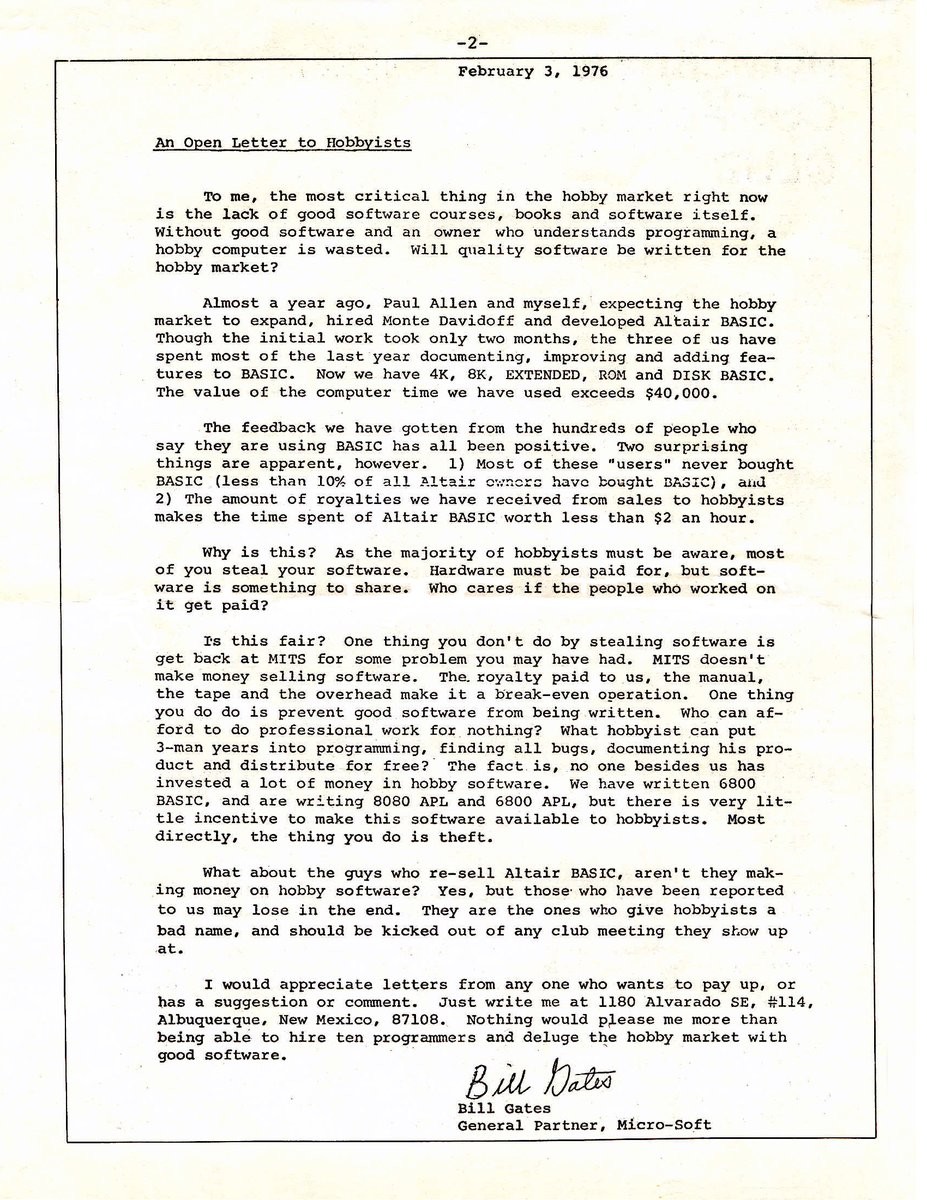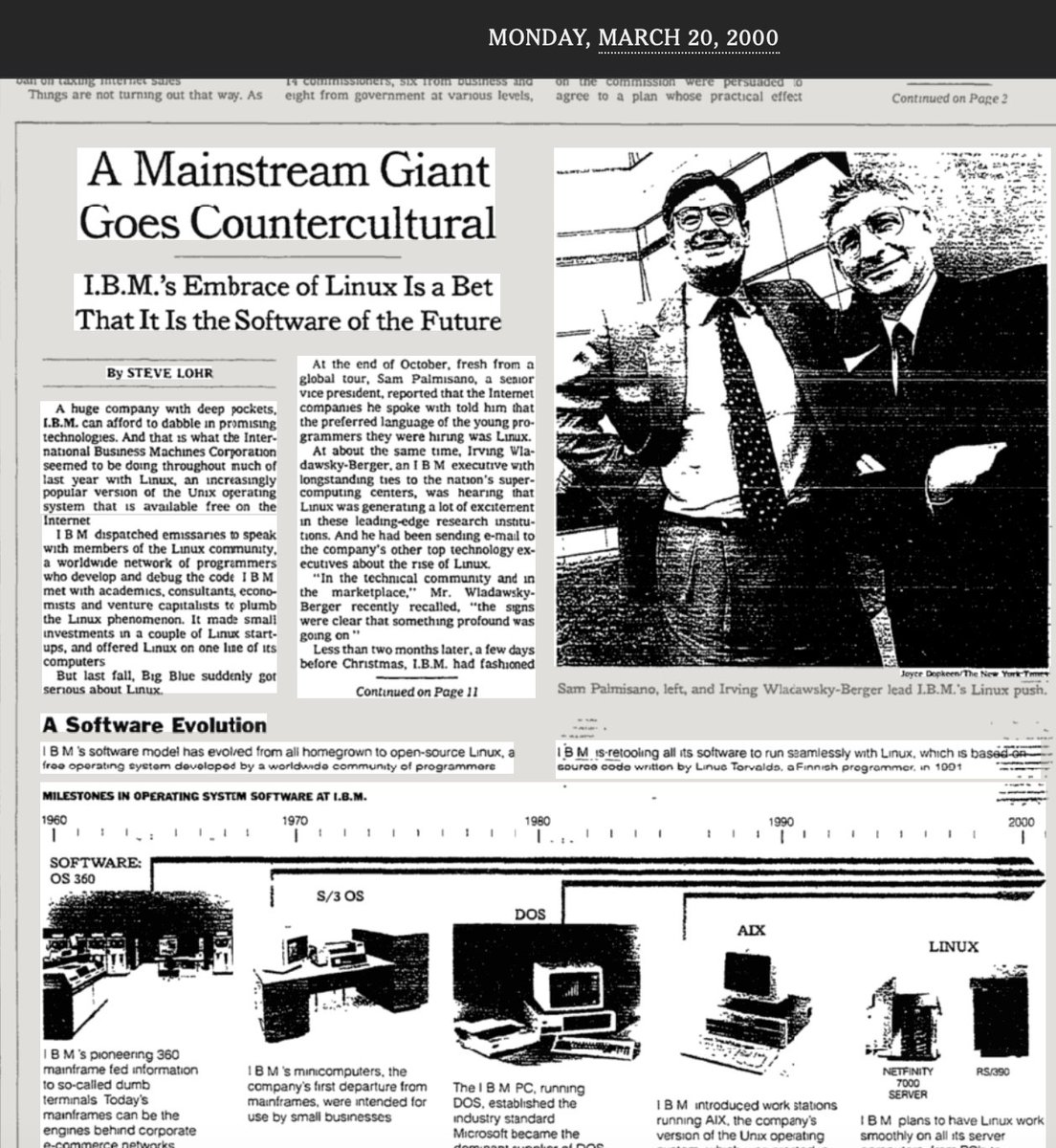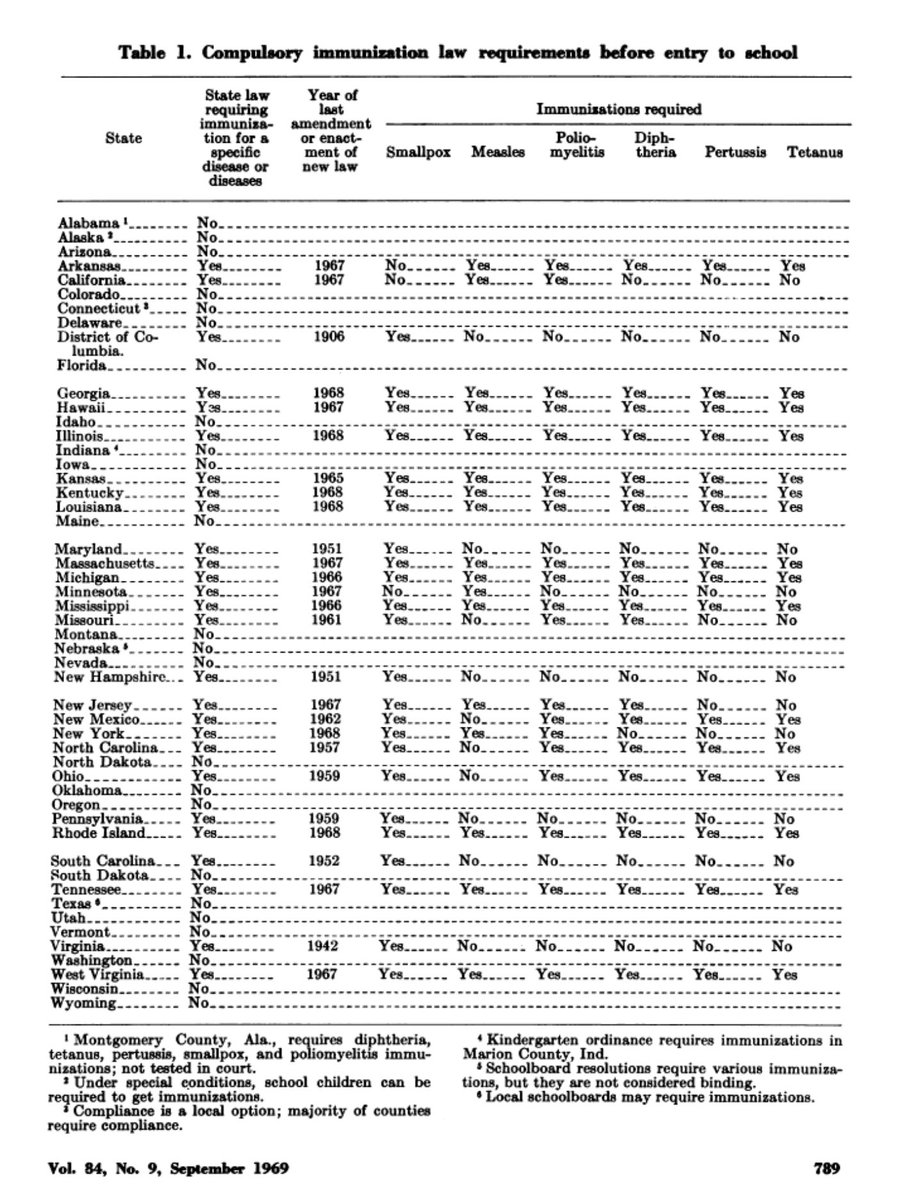Many followed. Many expanded on an idea of IP—patents, lawsuits over user interface, and more. IBM, Apple, etc.
For years, GNU and others duplicated what was already commercial w/ different license.
First, Linux just did a bunch of stuff on the internet than WinNT did not do (and by almost all accounts still does not). It cost less to run and scaled better.
In many ways this turned out to be a side show in the biggest innovation.
Alternatively, Windows wasn't really set up to be licensed in this way outside of a company.
MS software became part of "COGS" with a per-user royalty and thus not the best platform to build a company.
In other words they never redistributed FOSS. They simply took open source, modified it, and used it.
But to understand a change of heart should do so in the context that created the initial view and allowed for the change. // END









